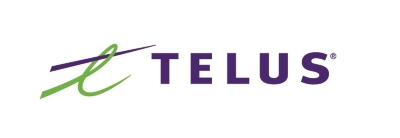New Harris/Decima survey reveals 89 per cent of Canadians attracted to
companies that offer flexible work
"Flexible Work" survey, commissioned by TELUS, finds Canadian companies that offer flexible work options may enjoy lower employee turnover rates
TORONTO, May 18 /CNW/ - According to a new survey conducted by Harris/Decima, 89 per cent of employees think that offering a flexible work program makes a company more attractive. Survey results also revealed flexible work is considered the second most important factor, after money, when Canadians are looking for a new job.
The national Evaluating Attitudes about Flexible Work survey, commissioned by TELUS, polled more than 1,000 respondents*, including managers and employees, and found that allowing staff to work away from the office can deliver innumerable benefits to companies from both a productivity and staff retention standpoint.
"With the economy gaining strength, people will be increasingly selective about the companies they look to work for," said Jeff Lowe, vice president, TELUS. "Organizations that leverage technology to allow their staff to work anywhere - in the office, on the road or at home - will have a measurable advantage in the competition to attract top talent. At the same time, they'll increase their ability to retain the best and the brightest, inspiring the kind of productivity and loyalty that only the strongest companies in the world successfully generate amongst their teams."
The Flexible Work survey also found that:
- 81 per cent of respondents agreed that an organization offering a flexible work program positively differentiates one company from another.
- 67 per cent of Canadians surveyed noted they would be more loyal to companies that provided them with the option of flexible work.
- 87 per cent of employees who have ever worked remotely responded that they are just as productive, if not more, when working out of the office, and over half of all respondents (56 per cent) said that having a flexible work option would motivate them to work harder.
- Interestingly, the survey also found that only one-in-five of respondents (20 per cent) think the opportunity to work 24/7 is a downside, dispelling a common myth about mobile working.
- Despite a strong support for flexible work programs, only 46 per cent of survey participants work at a company that offers such a program.
In terms of efficiencies, one of the main benefits of implementing a flexible work program is reducing the high costs of staff turnover. Rarely does cost cutting increase employee morale but flexible work is one cost cutting measure employees react to favourably, leading to higher retention rates. The Proactive Business Leadership Organization estimates that depending on the position, losing an employee can cost up to 150 - 250 per cent of that person's annual salary. Therefore, if a company has 100 employees and the average salary is $35,000, with a turnover rate of 10 per cent, the company stands to lose at least $525,000 in turnover costs. Companies can also save at the front end with even higher costs-per-hire that can run as much as $43,000 for an executive, according to Conference Board of Canada statistics.
At TELUS, the Work Styles program, introduced in 2007 and launched nationally in 2009, is an enterprise-wide initiative that supports team members in eligible roles to work where it suits them best. In 2009, more than half of the TELUS team or almost 18,000 team members were remote-work enabled. Work Styles not only creates better work/life balance but minimizes the company's environmental impact by cutting commuting times. By 2015, TELUS's goal is to reduce its real estate footprint by 40 per cent with a corresponding 40 per cent reduction in utilities consumption costs.
For more information on TELUS, visit telus.com and www.telustalksbusiness.com
* In total, 1,013 online surveys were completed among a random sample of employed Canadians from the Harris/Decima online panel, of which 505 have employees who report directly to them and 508 do not. The survey was conducted from March 12th, 2010 to March 24th, 2010.
About TELUS
TELUS (TSX: T, T.A; NYSE: TU) is a leading national telecommunications company in Canada, with $9.6 billion of annual revenue and 11.9 million customer connections including 6.6 million wireless subscribers, 3.9 million wireline network access lines and 1.2 million Internet subscribers and 200,000 TELUS TV customers. Led since 2000 by President and CEO, Darren Entwistle, TELUS provides a wide range of communications products and services including data, Internet protocol (IP), voice, entertainment and video.
In support of our philosophy to give where we live, TELUS, our team members and retirees have contributed $158 million to charitable and not-for-profit organizations and volunteered 3.1 million hours of service to local communities since 2000. Nine TELUS Community Boards across Canada lead TELUS' local philanthropic initiatives. TELUS was honoured to be named the most outstanding philanthropic corporation globally for 2010 by the Association of Fundraising Professionals, becoming the first Canadian company to receive this prestigious international recognition.
For more information about TELUS, please visit telus.com.
For further information: Megan Fielding, TELUS Media Relations, (416) 894-0817, [email protected]

Share this article